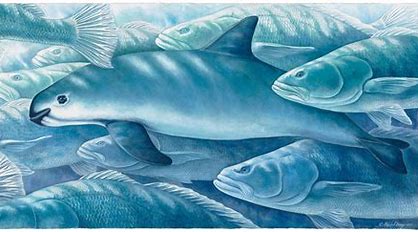A newly emerged cartel, composed of Chinese and Mexican nationals, is using alternative smuggling routes to traffic drugs and illicit goods. According to a memo from Canada’s border service, this group, known as the Dragon Cartel, is also deeply involved in the illegal trade of parts from an endangered species—the totoaba fish.
The swim bladders of the totoaba fish, also known as fish maws, are highly sought after in traditional Chinese medicine, cosmetics, and cuisine. The fish can measure up to seven feet long and weigh more than 200 pounds. They sometimes live for up to 25 years.
The organ, which helps the fish maintain buoyancy, is believed to have health benefits, including promoting longevity and vitality.
However, fish maws also have a dark history, as well, and are sometimes known as the “cocaine of the sea.” Criminal organizations exchange these bladders for fentanyl precursor chemicals, fueling the global drug trade.
The Dragon Cartel on the Rise
The black market price for totoaba swim bladders has skyrocketed, reaching up to $80,000 per kilogram, with demand continuing to drive prices higher.



